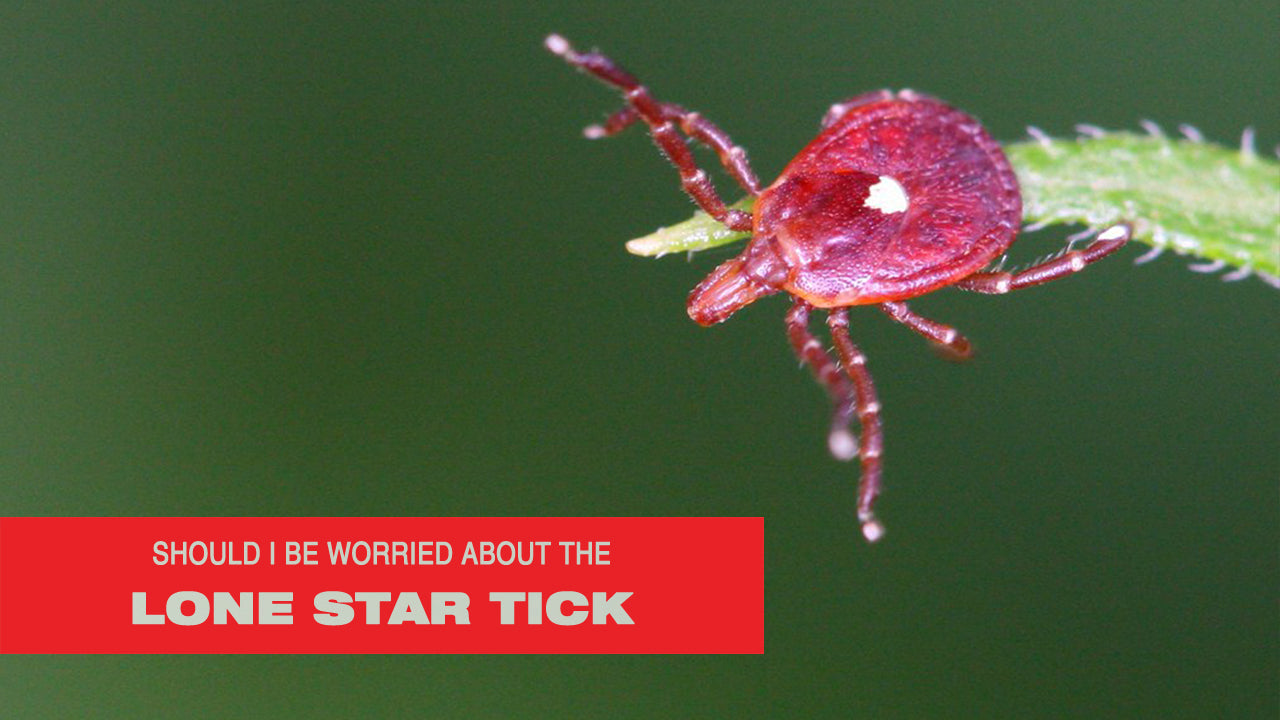What is a Lone Star Tick?
The lone star tick (Amblyomma Americanum) is a species of tick that aggressively feeds on a host to complete each stage of its life cycle. It’s not specific about the species of host it feeds on but needs a different host for each blood meal.
Like all ticks, the lone star tick can be a vector of diseases including human monocytotropic ehrlichiosis (Ehrlichia chaffeensis), canine and human granulocytic ehrlichiosis (Ehrlichia ewingii) among others.
Where are Lone Star Ticks found in the United States?
Widely distributed throughout the US, the lone star tick can be found in the eastern, southeastern, and midwestern states.
The tick usually live in wooded areas, especially in the thick underbrush of second-growth forests. It can be attributed to the vast population of the white-tailed deer in the area since they are the primary host of mature ticks. Another area that the ticks populate is the ecotonal or the transition zones between different biomes.
Some rare sightings where the tick was reported outside its natural territory include Southern Ontario, London, Wellington County, and the region of Waterloo.
What is Alpha-gal Syndrome?
Alpha-gal syndrome is identified as a type of food allergy to red meat, which can be caused by the bite of a lone star tick.
The condition begins when a lone star tick releases a sugar molecule, alpha-gal, into the human body through its bite. For some, the molecule triggers immune system reactions that further result in mild to severe allergic reactions on the consumption of red meat.
How many cases of Alpha-gal Syndrome in the United States in 2019?
Currently, the exact number of cases of Alpha-gal Syndrome is unknown. However, an approximation can be made based on the following data points released by the US Department of Health and Human Services under their Alpha-gal Syndrome Subcommittee Report.
- The triennial 2018 Chatham County Health Assessment ("Chatham County Community Assessment," 2018) found that 8.3% of the adults with a tick-borne illness in rural Chatham County, NC, also had AGS. The percent estimates that 862 people out of a total population of 73,139 have AGS.
- Erin McGintee of Ear, Nose, Throat and Allergy Associates in Southampton, NY reported 530 AGS patients as of August 2019.
- As of October 28, 2019, local or regional AGS Facebook Support Groups exist in at least sixteen different states. This list includes Arkansas, Delaware, Georgia, Illinois, Kansas, Kentucky, Missouri, New Mexico, North Carolina, Oklahoma, Tennessee, and Wisconsin.
How Can I Avoid Lone Star Ticks and Protect Myself
Since there is no known cure to Alpha-gal Syndrome or other diseases that the Lone Star Tick can spread, it is advised to avoid tick bites altogether. Here are a few steps you can take to protect yourself.
- Avoiding brushy, grassy, or otherwise wooded areas that may have a tick population
- Treating your clothes and other gear with permethrin or buying pre-treated items
- Using the Environmental Protection Agency's registered insect repellents when going out
- Checking your clothes for ticks when you return
- Doing a thorough check for ticks and taking a shower
- Taking precautionary steps to prevent ticks in your yard and on your pets. Follow this guide to check your dog for ticks.
Should I See a Doctor?
You should consult your primary doctor or an allergist if you experience any signs of food allergy after eating or even several hours after eating especially if you live in the southeastern states or any other part of the world that has had reported cases of the Alpha-gal Syndrome.
In case you develop signs of anaphylaxis like difficulty in breathing, rapid or weak pulse, dizziness, drooling, inability to swallow, full-body redness or flushing, seek emergency medical treatment immediately.
For more information on other tick-borne diseases and illnesses, read our guide about other common tick diseases in the United States.











